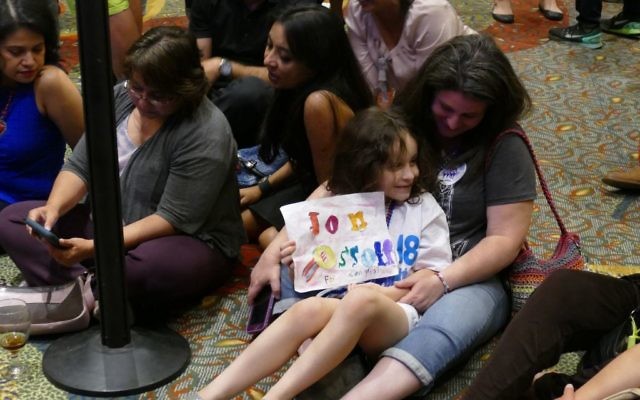Politics as Usual
Given a wide range of options, 6th District voters chose two candidates who ran conventional campaigns.

We’re supposed to be in an anti-establishment era, when activists on both sides of the spectrum are fired up about toppling the political status quo, draining the swamp, throwing the bums out and otherwise working metaphorical magic on a system that has left most of us disgusted with our elected officials.
So, naturally, which two of the 18 candidates easily advanced to the June 20 runoff in the 6th Congressional District? The most controlled, polished politicians in the field and the ones least likely to rock the boat by bucking their party leaders in Washington.
Democrat Jon Ossoff, despite running for office for the first time, and Republican Karen Handel, who is facing voters in at least part of the 6th District for the sixth time, were the only candidates we interviewed before the April 18 special election who kept us from breaking through their public facades.
Even the three candidates we didn’t interview — Bruce LeVell, Dan Moody and Mohammad Ali Bhuiyan — felt more human in their public appearances than Ossoff and Handel did when we sat across a table from them.
With all the other candidates, we left the interviews with some understanding of what drove them and made them want to represent three-quarters of a million Georgians. But Ossoff might as well have been wielding his college lightsaber, and Handel could have been clutching her pearls, the way they defended themselves against appearing too human.
Handel had two moments during our interview March 20 when she almost let us see past the political persona: when she felt that we were asking too many questions about Ossoff and when she talked about having to leave an unsafe home at an early age.
Ossoff never broke from the script during our interview Feb. 22, but we saw his passion at least two other times. When we initially posted online that Ossoff identifies as Jewish, he called to ensure we understood that he doesn’t identify as Jewish — he is Jewish. Then, in an interview with CNN on Election Day, he broke into a laugh when asked when he’ll marry his longtime girlfriend.
None of this is meant to criticize Ossoff or Handel. To the contrary, they deserve credit for understanding better than their opponents that what people say about Washington and how they vote are two different things. That’s why Congress as an institution gets horrible approval ratings, but incumbents are almost unbeatable.
Ossoff got 48.1 percent of the vote, roughly 50 times the total of the other four Democrats and the two independents combined. Handel got 19.8 percent, nearly double the total of third-place Bob Gray. There was tension the night of April 18 about whether there would be a runoff; there was never any doubt about who would be in the runoff if it happened.
Neither Ossoff nor Handel offered any dramatic or original policy proposals. Neither held a big edge in experience over party rivals. Neither wielded Obama- or Reagan-esque charisma or rhetorical skills.
They were both familiar and, for uncommitted voters, unthreatening. We’re never certain what a newly elected member of Congress will do, but Ossoff and Handel feel familiar enough that we trust them not to go wild in Washington. We expect Ossoff to be just another Democrat and Handel to be just another Republican vote.
That’s the choice voters asked for April 18, and that’s the choice they’ll have June 20.



comments